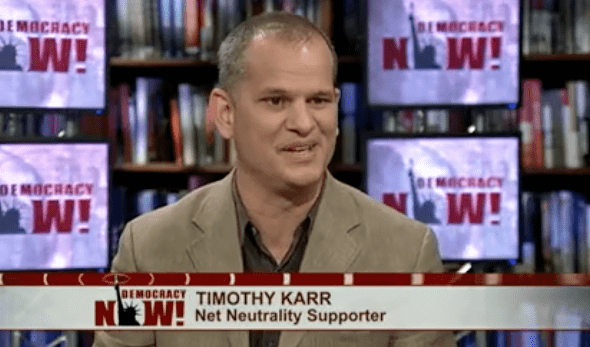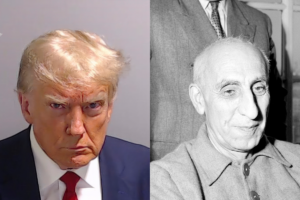Debate: What’s the Best Way to Protect Net Neutrality?
The Federal Communications Commission voted Thursday on new rules that would let Internet providers charge media companies extra fees to receive preferential treatment, such as faster speeds for their products and content. "Democracy Now!" hosts a debate on Net neutrality.
The Federal Communications Commission voted Thursday on new rules that would let Internet providers charge media companies extra fees to receive preferential treatment, such as faster speeds for their products and content.
Under previous regulations struck down earlier this year, Internet service providers were forced to provide all content at equal speeds. Just steps from the vote, demonstrators set up an “Occupy the FCC” encampment calling for federal regulators to reclassify broadband service as a public utility, which would allow for the requirement of Net neutrality rules.
The CEOs of 28 U.S. broadband providers and trade groups have conversely asked the FCC not to classify broadband as a utility, arguing that regulating broadband would “impose great costs, allowing unprecedented government micromanagement of all aspects of the Internet economy.”
“Democracy Now!” hosts a debate on Net neutrality with two guests: Timothy Karr of the media reform group Free Press, who backs greater regulation, and Joshua Steimle, a tech entrepreneur who argues the government should not be entrusted with regulating the Internet. Steimle recently published an article at Forbes called “Am I the Only Techie Against Net Neutrality?”
The segment begins at 12:25.
‘Democracy Now!’:
— Posted by Alexander Reed Kelly.
Your support matters…Independent journalism is under threat and overshadowed by heavily funded mainstream media.
You can help level the playing field. Become a member.
Your tax-deductible contribution keeps us digging beneath the headlines to give you thought-provoking, investigative reporting and analysis that unearths what's really happening- without compromise.
Give today to support our courageous, independent journalists.









You need to be a supporter to comment.
There are currently no responses to this article.
Be the first to respond.